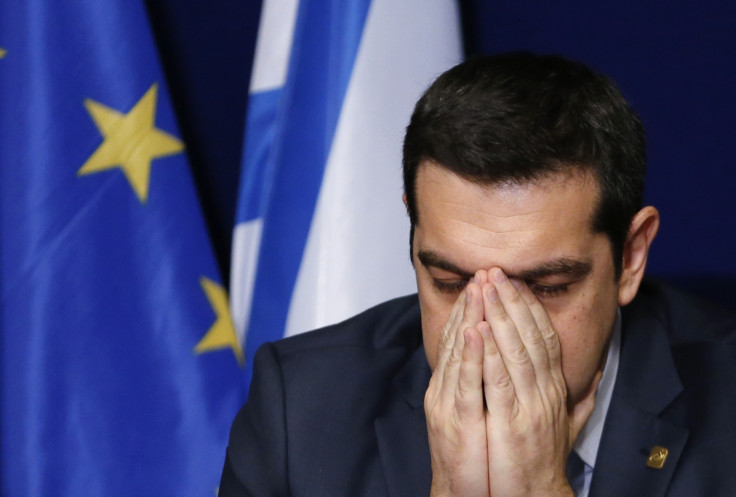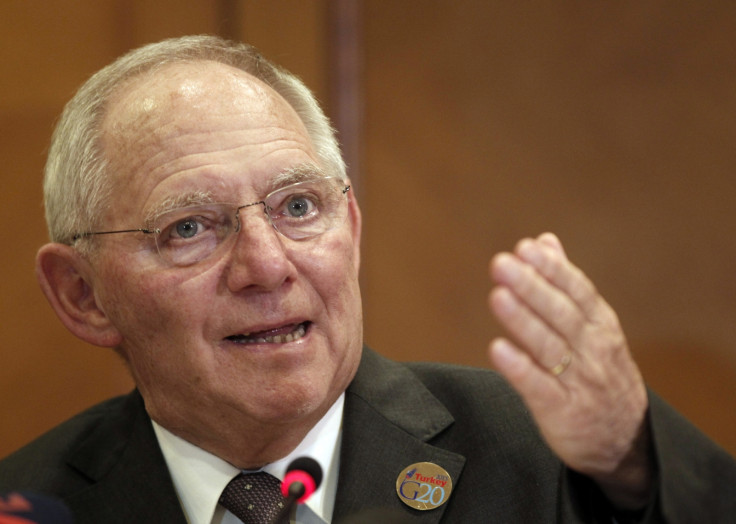William Keegan: Greek stay of economic execution raises pantomime spectre of post-war politics
The German finance minister, Wolfgang Schauble, could not resist it, could he? In what for your correspondent was the nastiest quote of the week, Herr Schauble just had to rub it in by proclaiming the Greek government "certainly will have a difficult time explaining the deal to its voters".
He was, of course, referring to the compromise agreement, or stay of economic execution, hammered out between the Greeks and the finance ministers of the rest of the eurozone on 20 February in Brussels.

Some compromise. Against the background of a Black Friday run on its banks, the Greek government had little alternative but to agree to draw up a batch of "reform measures", almost certainly involving more austerity than they bargained for, in order to extend the €172bn (£126bn, $195bn) rescue programme for four months.
Hated words such as "bailout" and "troika" are being downgraded but basically the deal amounted to the Greeks having to submit, once again, to a programme of measures for the approval (or not) of the European Commission, the International Monetary Fund (IMF) and the European Central Bank (ECB).
The new Greek government is well aware of the need for a serious attack on corruption and tax avoidance but there are other villains in this saga and the misconceived austerity programmes insisted on throughout the eurozone in recent years place the IMF and the Brussels Commission high on the list of guilty parties.
These institutions, urged on by the antediluvian economic doctrines of Germany, have caused unnecessary social harm not only to Greece but also to Ireland, Spain, Italy and Portugal.
A few years ago, Liaquat Ahamed wrote a brilliant book, Lords Of Finance, about the contribution made to the economic meltdown of the 1930s by the powerful central bankers of Britain, Germany and the US, and their obsession with the restoration of the gold standard.
When the history of the austerity forced upon Greece and the others after the financial crisis of 2007-09 is written, the damaging contributions made by the troika should bulk large.
One prominent official who ought to come off lightly is ECB president Mario Draghi, who not only committed himself to do "whatever it takes" to save the eurozone but has also done his best, in private and in some public statements, to argue against the excessively tight fiscal policies imposed by the troika.
Economic pantomime
But to return to Herr Schauble. If there is a pantomime villain in this sad affair it is surely him. No doubt he was irritated by reminders from clever Greek finance minister Yanis Varoufakis of the way Allied insistence on reparations after the 1914-18 war contributed to the rise of Hitler.
And no doubt it was embarrassing for him to be told that, while the hard-working Germans undoubtedly produced an economic miracle after the 1939-45 war, they got one hell of a lot of help from the Marshall Plan and a sensational programme of debt relief - the lessons of the 1920s having been well absorbed by the Allies.

Sadly, we are also witnessing a classic example of that well-known phenomenon, divide and rule.
The Greeks have not had much sympathy from countries such as Portugal, whose governments feel that, as they have gone through the mill, little mercy should be shown to the Greeks.
It remains an open question whether Greece will survive within the eurozone; but it is to be hoped that somebody reminds Herr Schauble and his ilk of the way Greece was only saved after the Second World War from the incursions of the Soviet bloc by a US/British rescue operation.
With President Putin flexing his muscles all over the place, there are geopolitical implications that could follow a botched rescue operation for Greece.
A few weeks ago, I compared the German attitude toward the Greeks to Groucho Marx's celebrated refrain in Horse Feathers: "Whatever it is, I'm against it!"
Given the way German and other banks have benefited from the Greek bailout funds, I am reminded of the scene in A Night At The Opera when Groucho, having dined with one of his ladies, gets up and leaves the bill on the table, cheekily declaring: "If I were you I wouldn't pay it!"
William Keegan is a journalist and academic who is the senior economics commentator at The Observer.
© Copyright IBTimes 2025. All rights reserved.





















